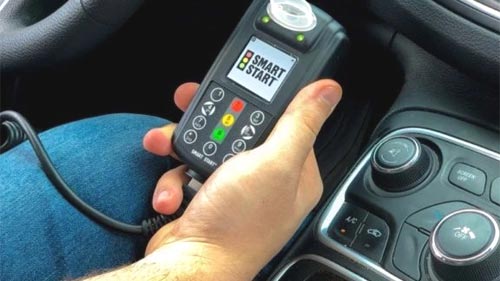
We all know that staying safe on the road is a top priority. Whether you are a seasoned driver or just starting, road safety is something that should never be taken lightly. One tool that has been gaining popularity in recent years for enhancing road safety is the ignition interlock device (IID). In this blog post, we will explore what ignition interlock devices are, how they work, and the many benefits they offer to drivers and the community as a whole.
What Is an Ignition Interlock Device?
Ignition interlock devices are small devices installed in a vehicle that prevent the engine from starting if the driver has been drinking alcohol. It serves as a deterrent against drunk driving and promotes responsible behavior on the road.
How Does an Ignition Interlock Device Work?
The operation of an IID is quite simple:
- Breath Test: Before starting the vehicle, the driver must blow into the device to measure their blood alcohol concentration (BAC). This is typically done by exhaling into a small tube connected to the IID.
- BAC Analysis: The device analyzes the breath sample to determine the driver’s BAC. If the BAC is below a predetermined threshold, usually around 0.02%, the vehicle will start as normal.
- Failed Test: If the BAC is above the threshold, the vehicle will not start. Some IID systems may also record the failed test and report it to the appropriate authorities.
- Periodic Retests: While driving, the IID may prompt the driver to take periodic breath tests to ensure sobriety. These tests are known as rolling retests.
- Reporting: Most IIDs store data on breath tests and vehicle usage. This information can be accessed by law enforcement or the court system as needed.
The Benefits of Ignition Interlock Devices
Now that we understand how ignition Roadguard Interlock devices, devices work, let’s dive into the numerous benefits they offer:
1. Preventing Drunk Driving
- Immediate Deterrence: IIDs provide an immediate deterrent to drunk driving. Knowing that they won’t be able to start their vehicle if they’ve been drinking discourages individuals from getting behind the wheel while intoxicated.
- Reducing Alcohol-Related Accidents: By preventing drunk driving, IIDs contribute to a significant reduction in alcohol-related accidents, injuries, and fatalities on the road.
2. Supporting Recovery
- Encouraging Sobriety: For individuals with DUI (Driving Under the Influence) convictions, IIDs can be part of a rehabilitation program. They encourage sobriety by making it impossible to drive while intoxicated, promoting responsible choices.
- Reintegration: IIDs can help individuals reintegrate into society by allowing them to drive to work, attend counseling or treatment sessions, and fulfill other essential responsibilities during their rehabilitation period.
3. Protecting Others on the Road
- Community Safety: When an intoxicated driver is prevented from starting their vehicle, it not only protects them but also everyone else on the road. This promotes overall community safety.
- Peace of Mind: Knowing that other drivers on the road may have IIDs installed can provide peace of mind to law-abiding citizens, knowing that there are measures in place to deter drunk driving.
4. Legal Compliance
- Meeting Legal Requirements: In many jurisdictions, individuals convicted of DUI offenses are required by law to have an IID installed in their vehicle as part of their sentence. Compliance with this requirement is crucial to avoid further legal consequences.
- Avoiding Penalties: Failure to comply with IID requirements can result in additional penalties, including extended license suspension or even imprisonment.
5. Data Collection and Monitoring
- Accountability: The data recorded by IIDs can serve as a tool for accountability. It allows the court, probation officers, or other relevant authorities to monitor a driver’s behavior and adherence to sobriety requirements.
- Evidence in Court: IID data can be used as evidence in court, providing an objective record of a driver’s compliance with sobriety requirements.
Who Can Benefit from an Ignition Interlock Device?
IIDs are not just for individuals with DUI convictions. They can be beneficial for various groups:
1. DUI Offenders
- Court-Mandated Requirement: DUI offenders often have IIDs installed in their vehicles as part of their sentence.
- Rehabilitation: IIDs can play a role in the rehabilitation process, helping individuals maintain sobriety and avoid further legal issues.
2. Parents of Teen Drivers
- Peace of Mind: Parents of teen drivers can install IIDs in their children’s vehicles to ensure that they are not driving under the influence.
- Encouraging Responsible Behavior: IIDs can also serve as a reminder for young drivers to make responsible choices when it comes to alcohol consumption.
3. Fleet Owners
- Enhancing Safety: Businesses with fleets of vehicles can install IIDs to enhance safety and reduce the risk of accidents involving alcohol-impaired drivers.
- Protecting Reputation: By taking proactive measures to prevent drunk driving among their employees, fleet owners can protect their company’s reputation and avoid liability.
4. Concerned Individuals
- Personal Choice: Anyone concerned about the dangers of drunk driving can choose to have an IID installed in their vehicle voluntarily.
- Promoting Responsible Driving: Installing an IID voluntarily sends a powerful message about the importance of responsible driving and sets a positive example for others.
The Cost of Ignition Interlock Devices
While the benefits of IIDs are clear, it is essential to consider the associated costs:
- Installation and Monthly Fees: There is typically an initial installation cost for the device, followed by monthly fees for maintenance and monitoring.
- Calibration and Servicing: IIDs require regular calibration and servicing to ensure accurate readings.
- Insurance Implications: Some insurance companies may increase premiums for vehicles with IIDs, while others may offer discounts for responsible driving behavior.
- Legal Costs: Individuals with DUI convictions may also face legal fees related to the installation and monitoring of IIDs.
It’s important to weigh these costs against the potential benefits and legal requirements to make an informed decision about installing an IID.
Conclusion
Ignition interlock devices are a valuable tool in promoting road safety and preventing drunk driving. They provide an immediate deterrent, support recovery, protect others on the road, and assist in legal compliance. While there are costs associated with IIDs, their benefits far outweigh the financial investment. Whether you’re a DUI offender looking to fulfill legal requirements or a concerned individual interested in enhancing road safety, an IID can make a significant difference in keeping our roads safe for everyone. Remember, when it comes to road safety, every responsible choice counts.




